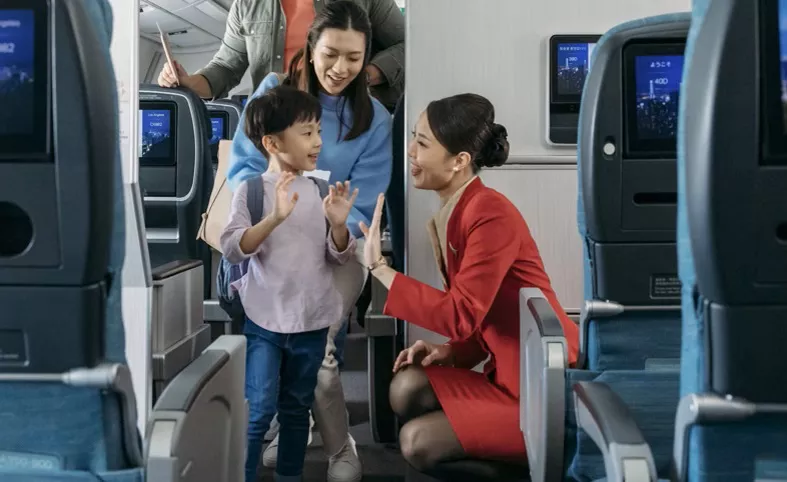The aviation industry offers lucrative career opportunities, particularly for pilots at major airlines. However, salaries can vary significantly based on factors such as experience, airline, aircraft type, and geographic location. This article delves into the earnings of major airline pilots, providing a comprehensive overview to help understand the financial prospects in this profession.
Factors Influencing Pilot Salaries
Several key factors influence a pilot’s salary:
- Experience and Rank: Pilots typically start as First Officers and progress to Captains. With experience, their responsibilities and earnings increase.
- Type of Airline: Major airlines often offer higher salaries compared to regional or low-cost carriers.
- Aircraft Type: Pilots operating larger, long-haul aircraft generally earn more than those flying smaller, short-haul planes.
- Geographic Location: Salaries vary by region due to differences in cost of living and demand for pilots.
Pilot Salaries in the United States
In the United States, pilot salaries vary across different airlines and positions:
Major Airlines
- United Airlines:
- First Officers: First-year pay averages $106,241, increasing to $139,827 in the second year.
- Captains: First-year pay averages $194,319, rising to $212,644 in the second year.
- Delta Air Lines:
- First Officers: Start at $111,324, with second-year earnings of $174,321.
- Captains: Begin at $192,440, increasing to $244,127 in the second year.
- American Airlines:
- First Officers: First-year pay is $109,324, reaching $172,624 in the second year.
- Captains: Start at $189,644, with second-year earnings of $222,416.
- Southwest Airlines:
- First Officers: Begin at $104,241, increasing to $157,422 in the second year.
- Captains: First-year pay averages $252,381, rising to $279,071 in the second year.
Regional Airlines
- Mesa Airlines:
- Captains: Earn $147,919 in the first year and $152,401 in the second year.
- Envoy Air:
- Captains: Start at $137,014, with second-year pay of $142,716.
It’s important to note that while regional airlines may offer lower starting salaries, they often serve as stepping stones for pilots aiming to join major carriers.
International Pilot Salaries
Pilot salaries vary significantly across different regions and airlines:
- United Kingdom and Europe:
- Senior Long-Haul Captains: At airlines like British Airways and Lufthansa, salaries range from £150,000 to £250,000 annually.
- Asia:
- Captains: In countries like China, experienced long-haul captains can earn up to $500,000 annually, reflecting the high demand for pilots in the region.
- Middle East:
- Captains: At carriers such as Emirates, long-haul captains may receive salaries up to $350,000 annually.
These figures highlight the global demand for experienced pilots and the competitive salaries offered to attract talent.
Salary Progression with Experience
A pilot’s salary typically increases with experience, reflecting their growing expertise and responsibilities:
- Entry-Level (New Pilots):
- Role: Flight Instructor or First Officer at regional airlines.
- Salary Range: $30,000–$60,000 annually.
- Flight Hours: 250–1,500 hours.
- Mid-Level (Regional Airline First Officers to Captains):
- Role: Regional Airline Captain or First Officer at a major airline.
- Salary Range: $60,000–$120,000 annually.
- Flight Hours: 1,500–5,000 hours.
- Experienced Level (Major Airline First Officer to Captain):
- Role: Major Airline Captain.
- Salary Range: $120,000–$250,000+ annually.
- Flight Hours: 5,000–10,000 hours.
- Senior and High-Level Experience (Top-Tier Captains):
- Role: Senior Captain on large jets, often for international flights.
- Salary Range: $200,000–$300,000+ annually.
- Flight Hours: 10,000+ hours.
This progression underscores the correlation between experience and earning potential in the aviation industry.
Additional Compensation and Benefits
- Overtime Pay: Many pilots earn extra income by flying additional hours beyond their scheduled flights. Airlines often pay premium rates for overtime work.
- Health and Retirement Benefits: Major airlines offer comprehensive health insurance, retirement plans (such as 401(k) plans with matching contributions), and other financial benefits.
- Flight Perks: Pilots often receive free or heavily discounted flights for themselves and their immediate family members, making travel more affordable.
- Paid Time Off: Senior pilots enjoy generous vacation allowances, with some getting several weeks off per year.
These benefits significantly enhance a pilot’s overall compensation, making it one of the more attractive careers in terms of financial rewards and job security.
Job Outlook for Airline Pilots
The demand for airline pilots is strong, with a projected increase in hiring over the next decade. According to the U.S. Bureau of Labor Statistics, employment for airline pilots is expected to grow by 6% from 2022 to 2032, driven by increasing air travel demand and retirements in the industry.
Factors influencing job opportunities include:
- Pilot Shortages: Many airlines face shortages due to retirements and increasing travel demand, leading to competitive salaries and better benefits.
- New Airline Agreements: Pilot unions negotiate for higher salaries and improved working conditions.
- Global Demand: The need for experienced pilots is especially high in regions like Asia and the Middle East, where airlines offer lucrative salaries to attract foreign pilots.
Aspiring pilots can look forward to a promising career with increasing opportunities for financial growth and job security.
Conclusion
Becoming a major airline pilot is a rewarding career path with high earning potential. Salaries depend on factors such as experience, airline, aircraft type, and location. While entry-level salaries may be modest, experienced pilots—especially captains at major airlines—can earn six-figure incomes with excellent benefits. As the aviation industry continues to grow, pilot salaries and demand are expected to rise, making this an attractive profession for those passionate about flying.
For anyone considering a career in aviation, the financial rewards and job stability make it an excellent choice. If you have a passion for flying, becoming a pilot can lead to a well-paid and fulfilling career.

